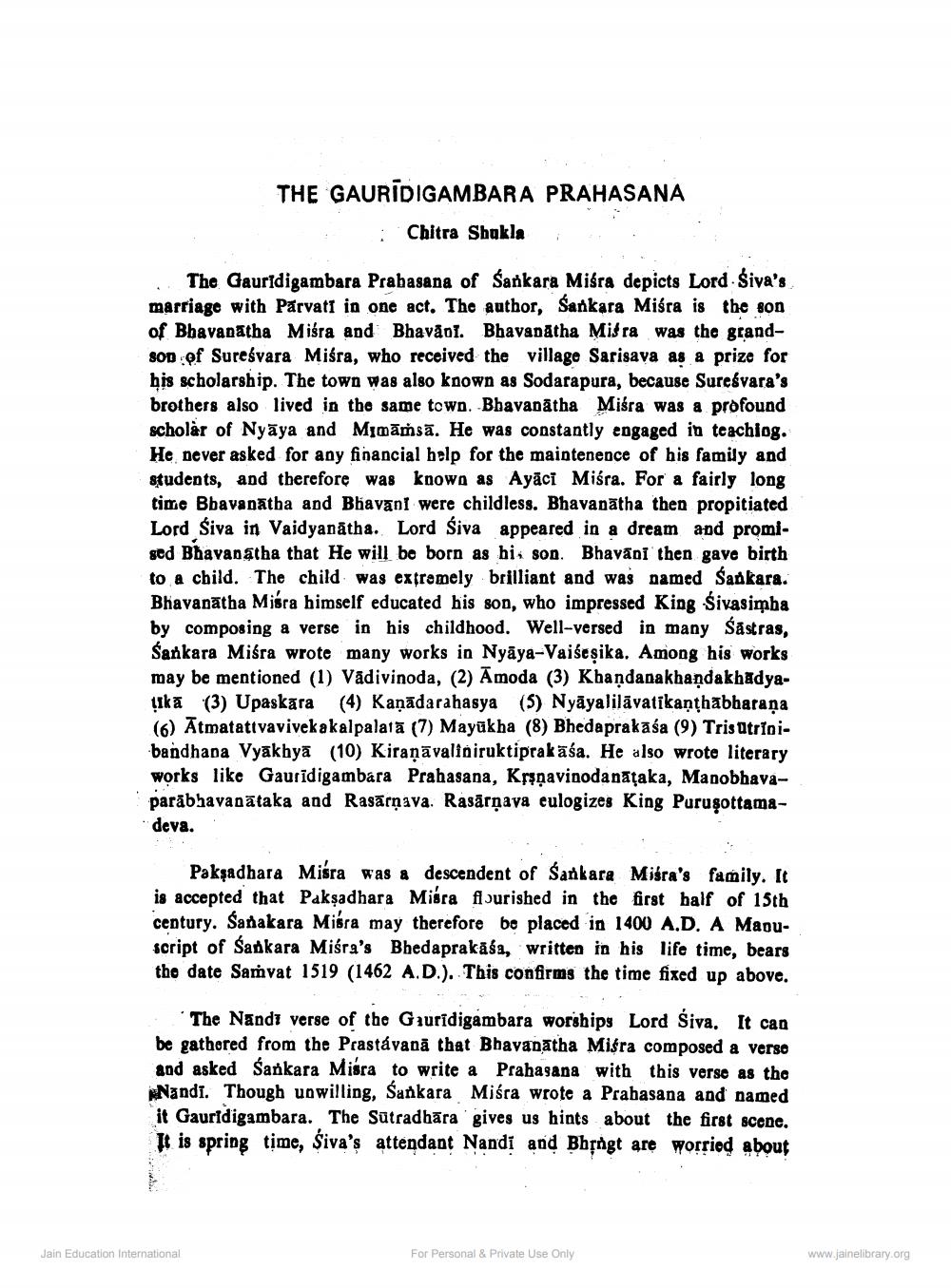________________
THE GAURĪDIGAMBARA PRAHASANA
i Chitra Shukla i dr .
The Gauridigambara Prabasana of Sankara Misra depicts Lord Siva's marriage with Parvati in one act. The author, Sankara Misra is the son of Bhavanatha Miśra and Bhavaol. Bhavanatha Mitra was the grandSOD of Sureśvara Miśra, who received the village Sarisava as a prize for his scholarship. The town was also known as Sodarapura, because Sureśvara's brothers also lived in the same town. Bhavanātha Miśra was a profound scholår of Nyāya and Mimāṁsā. He was constantly engaged in teachiog. He never asked for any financial help for the maintenence of his family and students, and therefore was known as Ayāci Miśra. For a fairly long time Bbavanātha and Bhavani were childless. Bhavanātha then propitiated Lord Siva in Vaidyanātha. Lord Śiva appeared in a dream and promisod Bhavanatha that He will be born as his son. Bhavani then gave birth to a child. The child was extremely brilliant and was named Sankara. Bhavanātha Mjśra himself educated his son, who impressed King Śivasimba by composing a verse in his childhood. Well-versed in many Sastras, Sankara Miśra wrote many works in Nyāya-Vaiścşika. Among his works may be mentioned (1) Vādivinoda, (2) Amoda (3) Khandanakhandakhadyaļikā (3) Upaskara (4) Kaņādarahasya (5) Nyāyalilāvatīkanthabharana (6) Ātmatattvavivekakalpalatā (7) Mayukha (8) Bhedaprakaśa (9) Tris utrioibandhapa Vyākhyā (10) Kiraņāvaliniruktiprakāśa. He also wrote literary works like Gauridigambara Prahasana, Krşņavinodanataka, Manobhavaparābhavanātaka and Rasārņava. Rasārņava eulogizes King Puruşottamadeva.
Pakşadhara Misra was a descendent of Sankara Misra's family. It is accepted that Pakşadhara Misra flourished in the first half of 15th century. Sanakara Misra may therefore be placed in 1400 A.D. A Mapuscript of Sankara Misra's Bhedaprakāśa, written in his life time, bears the date Samvat 1519 (1462 A.D.). This confirms the time fixed up above.
The Nandi verse of the Guridigambara worships Lord Siva. It can be gathored from the Prastávanā that Bhavanātha Misra composed a verso and asked Sankara Misra to write a Prahagana with this verse as the Nandi. Though unwilling, Sankara Miśra wrote a Prabasana and named it Gauridigambara. The Sutradhāra gives us hints about the first scene. It is spring time, Siva's attendant Nandi and Bhțngt are worriod about
Jain Education International
For Personal & Private Use Only
www.jainelibrary.org




